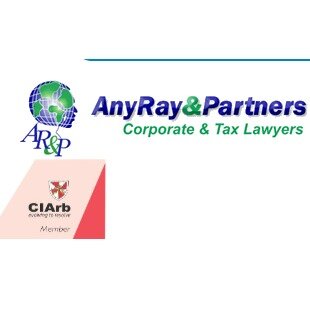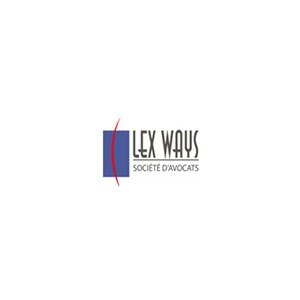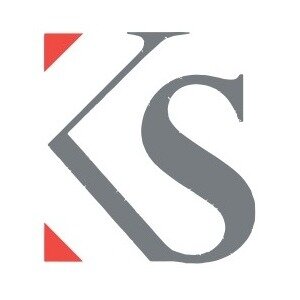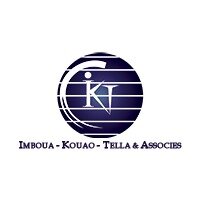Best Corporate & Commercial Lawyers in Ivory Coast
Share your needs with us, get contacted by law firms.
Free. Takes 2 min.
Or refine your search by selecting a city:
List of the best lawyers in Ivory Coast
About Corporate & Commercial Law in Ivory Coast
Corporate & Commercial law in Ivory Coast governs the way businesses are formed, managed, dissolved, and how commercial transactions occur within the country. This legal field combines aspects of company law, contract law, mergers and acquisitions, corporate governance, foreign investment regulations, and commercial dispute resolution. Ivory Coast’s legal system is heavily influenced by the French civil law tradition and the OHADA (Organisation for the Harmonization of Business Law in Africa) framework, making its corporate environment accessible for both local and foreign investors. Corporate & Commercial law plays a vital role in ensuring business stability, fair competition, and legal certainty in commercial dealings.
Why You May Need a Lawyer
There are several situations where hiring a corporate & commercial lawyer in Ivory Coast may be essential. These include:
- Registering a new business and choosing the correct legal structure
- Drafting, reviewing, or negotiating contracts and commercial agreements
- Restructuring or merging a company
- Ensuring compliance with OHADA and Ivorian legal requirements
- Resolving disputes between partners, shareholders, or clients
- Securing foreign investment or navigating cross-border transactions
- Protecting intellectual property such as trademarks or patents
- Handling issues related to employment law within a corporate context
- Managing tax, customs, and regulatory obligations
- Winding up or dissolving a business legally
In all these scenarios, a qualified legal professional helps you avoid costly mistakes, ensures compliance, and protects your business interests.
Local Laws Overview
Ivory Coast’s corporate and commercial legal landscape rests mainly on two pillars: national laws and OHADA laws. Here are some key aspects to consider:
- Business Entities: The most common business forms are Société à Responsabilité Limitée (SARL - limited liability company) and Société Anonyme (SA - public limited company). Each has distinct requirements for formation, governance, and liability.
- OHADA Uniform Acts: These regional instruments provide harmonized rules on company law, securities, commercial sales, and bankruptcy applicable across 17 member states.
- Registration Requirements: All business entities must register with the Registre du Commerce et de Crédit Mobilier (RCCM) for legal recognition.
- Foreign Investment: Foreign investors are generally welcome, subject to certain sectors where approval or partnership with local entities is required.
- Contracts: Contracts must comply with the OHADA Uniform Act on General Commercial Law, emphasizing consensual agreements, good faith, and clear terms.
- Taxation: Companies are subject to corporate income tax, value-added tax (VAT), and other statutory contributions. Proper registration and regular filings are essential.
- Employment: The Labor Code sets rules for employment contracts, wages, and worker protection within commercial businesses.
- Dispute Resolution: Commercial disputes are generally handled by the Commercial Court or through arbitration, with some cases falling under the regional OHADA Common Court of Justice and Arbitration.
Understanding these legal foundations will help businesses operate smoothly in Ivory Coast’s commercial environment.
Frequently Asked Questions
What is the process for registering a company in Ivory Coast?
Businesses must submit documents to the Centre de Promotion des Investissements en Côte d’Ivoire (CEPICI), including articles of association, identification of founders, and proof of address. The process includes registration at the RCCM and obtaining a tax identification number.
What types of business entities are available in Ivory Coast?
The main types are SARL (limited liability company), SA (public limited company), SNC (general partnership), SCS (limited partnership), and sole proprietorships. The choice depends on the business size, capital, and management needs.
Can foreigners fully own companies in Ivory Coast?
Yes, foreigners can generally own 100 percent of a company, except in strategic sectors where certain local ownership or government approval is required.
Are there minimum capital requirements for company formation?
Yes, for example, the minimum capital for a SARL is generally 1,000,000 CFA francs, while other forms like SAs may require higher capital. Certain businesses may have specific obligations.
How are commercial disputes resolved in Ivory Coast?
Disputes can be resolved in local commercial courts, or through alternative dispute resolution methods like arbitration or mediation. Some cases may be referred to the OHADA regional court.
What taxes must businesses pay in Ivory Coast?
Key taxes include corporate income tax, VAT, local business tax, and payroll taxes. Proper registration with tax authorities and timely filings are mandatory to avoid penalties.
Are business contracts required to be in French?
Yes, since French is the official language, all legal documents including contracts must be drafted or translated into French for them to be enforceable in local courts.
Is it mandatory to have a local director or shareholder?
Not always, but some sectors or business types may require a certain percentage of local ownership or a local resident director. Legal advice is recommended to clarify obligations based on the activity.
How can I protect my intellectual property in Ivory Coast?
Intellectual property such as trademarks and patents can be registered with the African Intellectual Property Organization (OAPI), to which Ivory Coast is a member. Legal assistance is helpful for application and enforcement steps.
What are the compliance obligations after company creation?
Companies must submit annual financial statements, hold general meetings, pay taxes, and maintain updated records with the RCCM and other regulatory authorities. Failure to comply can result in fines or dissolution.
Additional Resources
The following organizations and bodies can provide further guidance or assistance:
- Centre de Promotion des Investissements en Côte d’Ivoire (CEPICI) - for company registration and investment information
- Registre du Commerce et de Crédit Mobilier (RCCM) - for business registration
- Organisation pour l’Harmonisation en Afrique du Droit des Affaires (OHADA) - for harmonized business laws
- Chambre de Commerce et d’Industrie de Côte d’Ivoire (CCI-CI) - local business support and resources
- Ministère du Commerce et de l’Industrie - regulatory guidance and sectoral requirements
- OAPI - for intellectual property registration and protection
- Barreau de Côte d’Ivoire (Bar Association) - for directory of licensed lawyers in corporate and commercial law
Next Steps
If you require legal advice or assistance for a corporate or commercial matter in Ivory Coast, consider taking the following steps:
- Identify your specific legal needs, such as company formation, contract negotiation, or dispute resolution
- Gather all relevant documents and information related to your business or transaction
- Contact a reputable law firm or individual lawyer specialized in corporate & commercial law
- Consult with the CEPICI or CCI-CI for preliminary procedural guidance
- Ensure your legal advisor has experience with OHADA and Ivorian law
- Follow legal recommendations closely, and maintain records of all filings and correspondence
- Plan for ongoing compliance, including yearly filings and regulatory updates
Timely legal consultation can prevent costly mistakes and safeguard your business interests as you start or manage your commercial venture in Ivory Coast.
Lawzana helps you find the best lawyers and law firms in Ivory Coast through a curated and pre-screened list of qualified legal professionals. Our platform offers rankings and detailed profiles of attorneys and law firms, allowing you to compare based on practice areas, including Corporate & Commercial, experience, and client feedback.
Each profile includes a description of the firm's areas of practice, client reviews, team members and partners, year of establishment, spoken languages, office locations, contact information, social media presence, and any published articles or resources. Most firms on our platform speak English and are experienced in both local and international legal matters.
Get a quote from top-rated law firms in Ivory Coast — quickly, securely, and without unnecessary hassle.
Disclaimer:
The information provided on this page is for general informational purposes only and does not constitute legal advice. While we strive to ensure the accuracy and relevance of the content, legal information may change over time, and interpretations of the law can vary. You should always consult with a qualified legal professional for advice specific to your situation.
We disclaim all liability for actions taken or not taken based on the content of this page. If you believe any information is incorrect or outdated, please contact us, and we will review and update it where appropriate.
Browse corporate & commercial law firms by service in Ivory Coast
Ivory Coast Attorneys in related practice areas.
Browse corporate & commercial law firms by city in Ivory Coast
Refine your search by selecting a city.












